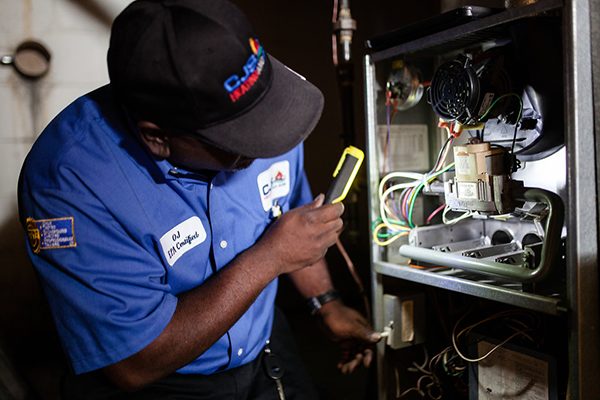 Are you confident that your old furnace can meet the demands of your home during the winter months? Make sure by letting our clean, screened, trained and timely heating techs perform expert Columbus heating repair services. Call (614) 388-9241 before there’s a problem.
Are you confident that your old furnace can meet the demands of your home during the winter months? Make sure by letting our clean, screened, trained and timely heating techs perform expert Columbus heating repair services. Call (614) 388-9241 before there’s a problem.
Heating repair in Columbus, OH
When your furnace breaks down, the last thing you want to worry about is dealing with an unprofessional HVAC repair company. At CJS Heating & Air, everything we do is about you.
From arriving on time to providing you with affordable heating repair solutions, our staff always puts your needs and comfort as our number one priority. We can also help to prevent these issues from ever occurring through the use of our furnace maintenance solutions. This service includes furnace cleaning, furnace tune up, changing of furnace air filters, and any other heating service you may need. So if you want the highest quality furnace solutions for your home, then let our company provide you with the quality that you deserve.
Best Choice for Heating repair in Columbus
Between 1000 B.C. and 1700 A.D., the Columbus metropolitan area was a center to indigenous cultures known as the Moundbuilders. The cultures included the Adena, Hopewell and Fort Ancient people. The only remaining physical evidence of the cultures are their burial mounds and what they contained. Most of Central Ohio’s remaining mounds are located outside of Columbus city boundaries, though the Shrum Mound is upkept, now part of a public park and historic site. The city’s Mound Street derives its name from a mound that existed by the intersection of Mound and High Streets. The mound’s clay was used in bricks for most of the city’s initial brick buildings; many were subsequently used in the Ohio Statehouse. The city’s Ohio History Center maintains a collection of artifacts from these cultures.
The area including modern-day Columbus once comprised the Ohio Country, under the nominal control of the French colonial empire through the Viceroyalty of New France from 1663 until 1763. In the 18th century, European traders flocked to the area, attracted by the fur trade.
The area was often caught between warring factions, including American Indian and European interests. In the 1740s, Pennsylvania traders overran the territory until the French forcibly evicted them.

